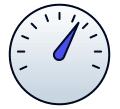We all know Americans love their coffee. In fact, more than 60% drink at least 1 cup daily, according to the National Coffee Association. While your business serves a majority, sometimes catering to the crowd isn’t enough to keep your company in the black or cover unexpected costs. If you’re experiencing financial difficulties due to an emergency repair or an unplanned bill, or just need working capital for your coffee shop, you might turn to financing.
How Will You Use Your Coffee Shop Loan?
Whether you’re looking to buy the latest commercial espresso machine, new furniture for your coffee shop or a wholesale supply of fresh-roasted Arabica beans, there’s a cafe loan that can help you fund your business investment. Let’s take a look at instances when a business loan for a coffee shop can help.
Buy Coffee Shop Equipment
Maybe you’re in the market to upgrade your espresso machine. You’ve researched different machines by brand, group heads, boiler capacities and more. You’ve narrowed it down to your top 2, which are comparable in price — around $6,000. While you have the funds in your business savings account, you don’t want to tie up that money. You decide taking out a loan is the best decision.
You might also consider using financing to fund equipment purchases, such as:
- Brewers
- Coffee grinders
- Refrigerator
- Dishwasher
- Audio equipment
- Point-of-sale system
Purchase Inventory
According to a 2019 survey from the National Coffee Association USA, 61% of coffee drinkers polled prefer gourmet. In your quest to offer the highest quality java to your clients, you’ve decided to switch brews. You’ve started working with a different wholesale distributor to order a new supply of organic, fair trade Colombian coffee you know your customers will truly savor.
Your supplier is asking you to meet their minimum order quantity, but after you’ve paid your everyday expenses, you don’t have quite enough cash on hand to make the large purchase order. You consider how coffee shop funding could make it easy to buy the product you want and get your customers coming back.
Pay Your Coffee Shop Bills
Some months you’re just making ends meet, and then something goes wrong. Maybe it’s an unexpected tax bill when you just finished paying your invoices for the month, or a broken air conditioner in the middle of summer. Whatever the case, when your business is in a temporary slump, financing can help you get through challenging times.
Examples of other bills you might need help covering include:
- Business insurance
- Payroll
- Advertising
- Maintenance
- Rent
- Utilities
How Much Can My Business Qualify For?
Best Financing and Loan Options for Coffee Shops
Once you’ve determined that financing is what your business needs, consider what factors are most important to you. Are you looking for fast funds? Do you need to borrow a large sum? What repayment terms are you seeking? To help answer these questions, here’s a breakdown of a few coffee shop funding options.
SBA Loans
Lenders providing loans backed by the Small Business Administration (SBA) are able to offer some of the most competitive interest rates and repayment terms. This is because the SBA guarantees a certain percentage of each loan, up to 85% in some cases. Repayment terms can vary, depending on the specific loan.
SBA 7(a) loans, for example, can be used for virtually any business need and loans used for working capital can be repaid in 10 years, while loans used for commercial real estate can be repaid in 25 years. Additionally, the maximum loan amount for 7(a) loans is $5 million, although funding could take a few months.
If you need faster access to funds and your coffee shop financing needs don’t exceed $350,000, consider an SBA Express. With this type of SBA loan, you could receive your coffee shop funding in as little as 30 days.
Equipment Financing
If you need funding only to get appliances or machinery for your business, consider equipment financing, which is available to help you lease or buy equipment. Depending on the lender, you could be able to get financing to cover 100% of the equipment cost. Repayment terms typically don’t exceed the useful life of the equipment.
Additionally, with an equipment loan, the equipment serves as collateral for your financing. Because lenders can seize your equipment for non-payment, this type of financing is often considered less risky.
Term Loan
If you’re a small business owner looking for a business loan for your cafe, consider a term loan. With this type of funding, you receive a one-time injection of funds that you can use for any business expense. Depending on your lender and loan amount, you’ll either pay back your loan with daily, weekly or monthly payments, and terms can vary from 1 year to several years. Loan limits may be available up to $500,000.
Business Line of Credit
A business line of credit is a flexible funding solution that could provide you with several hundred thousand dollars of credit, available when you need it. Similar to a credit card, you pay interest only on the amount you use, and typically, as you pay down your debt, your business credit line is restored.
Merchant Cash Advances
If you’ve been in the coffee industry for a bit you know the business can have its ebbs and flows. Merchant cash advances provide you with funding based on your future sales. You pay back your advance on a daily or weekly schedule, committing a portion of your sales to your lender. Payments can be fixed or vary depending on your actual revenue. Additionally, repayment terms can range from a few months to more than a year.
Where to Find Coffee Shop Loans
When you’re looking for financing, you could get a bank loan for your coffee shop, or you could get a loan through a non-bank lender. While bank loans for coffee shops can offer competitive rates and terms, they often require borrowers to have higher credit scores than non-bank lenders. Additionally, application and funding processes can be lengthy and you could be required to submit several business documents, such as tax returns, profit-and-loss statements, a business plan and bank statements.
Alternatively, non-bank lenders usually have streamlined application processes and less stringent borrower requirements. Additionally, access to funding is quick — sometimes in as fast as 1 day.











